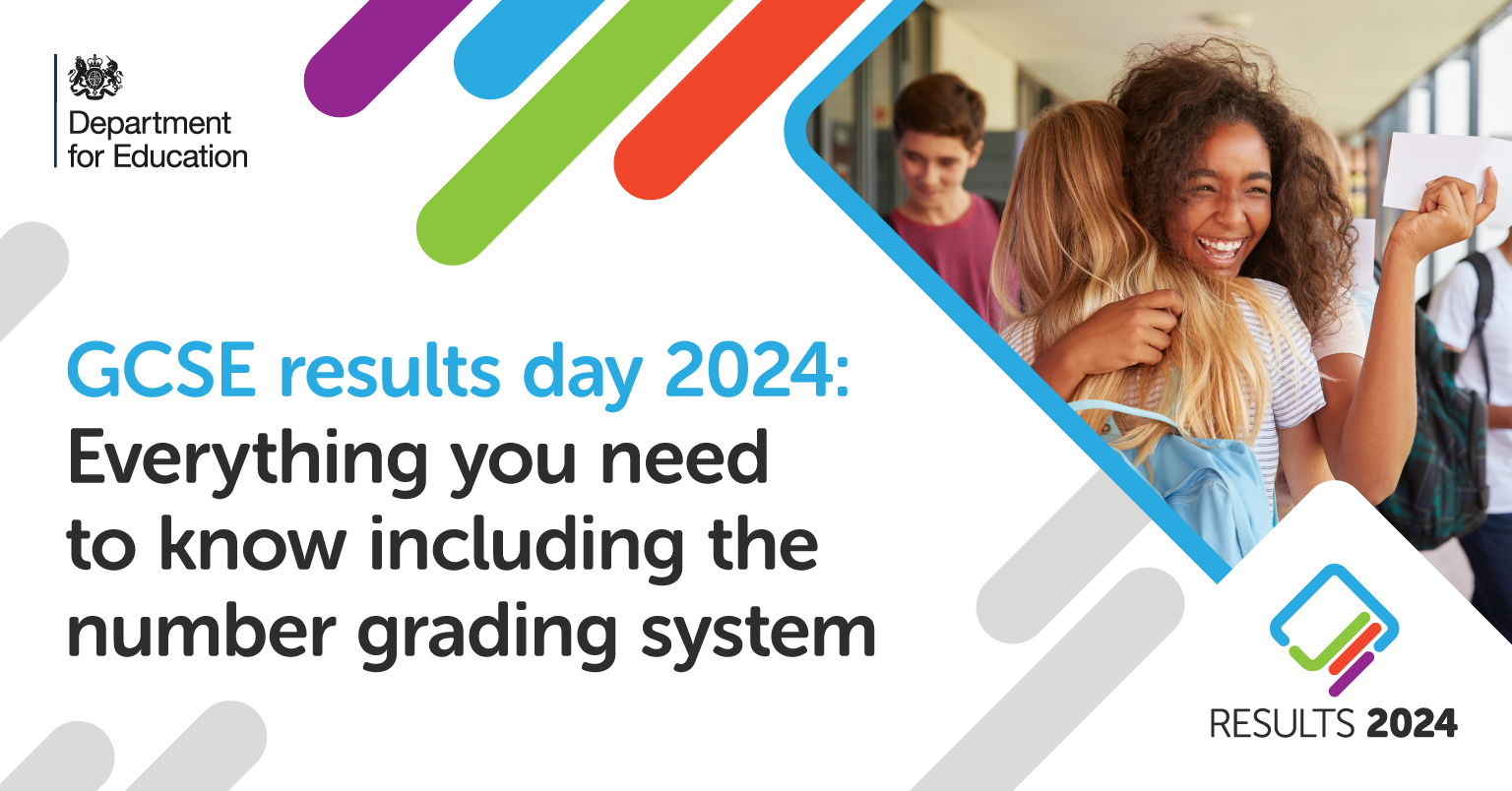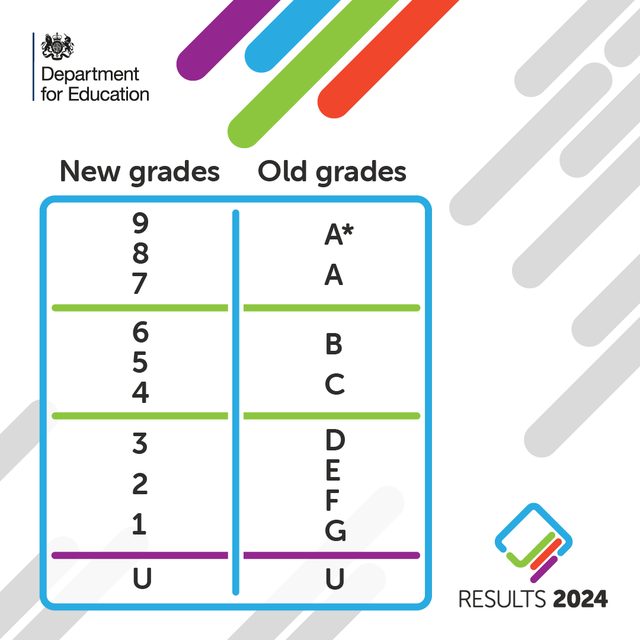
Thousands of students across the country will soon be finding out their GCSE results and thinking about the next steps in their education.
Here we explain everything you need to know about the big day, from when results day is, to the current 9-1 grading scale, to what your options are if your results aren’t what you’re expecting.
When is GCSE results day 2024?
GCSE results day will be taking place on Thursday the 22 August.
The results will be made available to schools on Wednesday and available to pick up from your school by 8am on Thursday morning.
Schools will issue their own instructions on how and when to collect your results.
When did we change to a number grading scale?
The shift to the numerical grading system was introduced in England in 2017 firstly in English language, English literature, and maths.
By 2020 all subjects were shifted to number grades. This means anyone with GCSE results from 2017-2020 will have a combination of both letters and numbers.
The numerical grading system was to signal more challenging GCSEs and to better differentiate between students’ abilities - particularly at higher grades between the A*-C grades. There only used to be 4 grades between A* and C, now with the numerical grading scale there are 6.
What do the number grades mean?
The grades are ranked from 1, the lowest, to 9, the highest.
The grades don’t exactly translate, but the two grading scales meet at three points as illustrated below.

The bottom of grade 7 is aligned with the bottom of grade A, while the bottom of grade 4 is aligned to the bottom of grade C.
Meanwhile, the bottom of grade 1 is aligned to the bottom of grade G.
What to do if your results weren’t what you were expecting?
If your results weren’t what you were expecting, firstly don’t panic. You have options.
First things first, speak to your school or college – they could be flexible on entry requirements if you’ve just missed your grades.
They’ll also be able to give you the best tailored advice on whether re-sitting while studying for your next qualifications is a possibility.
Resits
If you’re really unhappy with your results you can enter to resit all GCSE subjects in summer 2025. You can also take autumn exams in GCSE English language and maths.
Speak to your sixth form or college to decide when it’s the best time for you to resit a GCSE exam.
Look for other courses with different grade requirements
Entry requirements vary depending on the college and course. Ask your school for advice, and call your college or another one in your area to see if there’s a space on a course you’re interested in.
Consider an apprenticeship
Apprenticeships combine a practical training job with study too. They’re open to you if you’re 16 or over, living in England, and not in full time education.
As an apprentice you’ll be a paid employee, have the opportunity to work alongside experienced staff, gain job-specific skills, and get time set aside for training and study related to your role.
You can find out more about how to apply here.
Talk to a National Careers Service (NCS) adviser
The National Career Service is a free resource that can help you with your career planning. Give them a call to discuss potential routes into higher education, further education, or the workplace.
Whatever your results, if you want to find out more about all your education and training options, as well as get practical advice about your exam results, visit the National Careers Service page and Skills for Careers to explore your study and work choices.